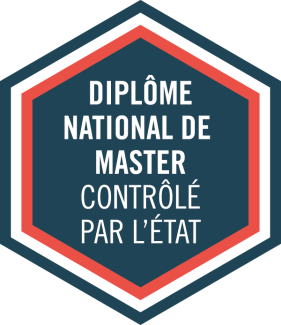
Teaching method: Initial training, Continuing education or Work-linked training
Location : Marseille
Type of degree: Master
Duration of studies: 2 years
Output level: Bac+5
Language(s) : French
Department : Management Culture and Territories

-
Objectives
This professional master's degree, created in 2001, aims to train students in initial and continuing training (Contrat de professionnalisation, CPF, VAP and VAE) to take on positions as multi-skilled executives, managers and contribute to the development of social entrepreneurship and the social and solidarity economy (SSE). They must be able to manage change in these organizations. They may also become project managers, project managers or consultants. This multidisciplinary and professionalizing training aims at acquiring decision support tools for cooperative and participative management, people and skills management (salaried and volunteers), learning organizational diagnosis and change management in SSE organizations as well as building action strategies through network animation, project management and evaluation in a logic of territorial cohesion and job sustainability. This training places particular emphasis on the collective making of change.
At the end of the training, the graduates will know how to :
- Analyze the specificities of SSE, its evolution, its environment and its ecosystem and understand the stakes. Find their bearings in the diversity of SSE organizations.
- Build and analyse the strategy of the SSE organisation
- Driving change in SSE organizations
- Designing, managing and leading the human resources management policy in a context of contract diversity and employee-volunteer coexistence
- Manage the organization in its different dimensions (administrative, financial, legal, communication and marketing, evaluation, etc.).
- Conceive, manage and lead collective projects internally to SSE organizations and on the territory, know how to work in teams
- Design, develop and lead networks in the territory in partnership with social, economic and political actors.
These skills are developed through theoretical and professional training, conferences, case studies and an internship of at least 4 months (except for CF in a professional situation).
-
Teachings
Master 2 HRM Typical course Social and Solidarity Economy (SSE) Semester 3 M2 HRM Typical course Social and Solidarity Economy (SSE)
- Social and solidarity economy (10 credits)
- Socio-economics of SSE
- SSE: an international perspective
- Public regulation and territories
- Professional Conferences
- SSE Law, Management and Taxation (10 credits)
- SSE Law
- Accounting, financial and tax management
- Professional Conferences
- Management and human resources of SSE organisations (10 credits)
- Management and change management in EHS organisations
- Analysis of work in SSE organisations
- HRM: employees and volunteers
- Professional Conferences
Master 2 HRM Typical course Social and Solidarity Economy (SSE) Semester 4 M2 HRM Typical course Social and Solidarity Economy (SSE)
- Entrepreneurship, marketing, financing and management of collective projects (10 credits)
- Marketing and communication
- SSE Financing and Entrepreneurship
- Management of collective projects
- Project evaluation devices
- Methodology, professional experience, dissertation (20 credits)
- Social and solidarity economy (10 credits)
-
Admission - Second Year
Who can apply?
Students who have validated the FEG M1 HRM are admitted by right to one of the courses of the mention open to initial or continuing education according to their wishes and the capacity of reception.
Access to Master 2: Hold a Master 1 or a diploma of equivalent level. For holders of a Bac+2 diploma or a licence (Bac+3), admission will be subject to a request for Validation of Professional Experience (VAP) and VAE.How to apply?
Apply at the time of admission on the dedicated platform.
For continuing education, candidates are invited to submit their applications to the Continuing Education Department of the Faculty of Economics and Run-of-river Management, throughout the year, in order to request financial support for their training before the start of the courses.
-
Practical information
The Master's degree is based at the LEST, UMR 7317 AMU-CNRS, a multidisciplinary laboratory (management sciences, economics, sociology, political science, law) whose research focuses on the study of transformations in work and organisations, employment and human resources management practices. A large proportion of the teaching staff is a member of LEST, which allows a real proximity and mutual enrichment between teaching and research. Possible gateway to the doctorate.
This training is available in :
- Initial training
- Continuing education
- Work-linked training
- Apprenticeship training
- Training under a professionalization contract
Writing and defence of a thesis in the context of an action research carried out by the student in connection with his or her place of internship (or professionalization contract, civic service or employment situation). Students and trainees are accompanied by a thesis director. Internship of at least 4 months on a work-study basis.
Master 2: Courses on Thursdays and Fridays from mid-September to mid-April combining theoretical courses and professional seminars + digital and MOOC tools + company visits, case study support (organisational diagnosis) with reverse pedagogy and role-playing. Emphasis is placed on the fabrication of participatory processes and collective dynamics. Group and individual work. The courses take place in Marseille at the FEG (Colbert site).
-
What's next?
Professional opportunities :
Targeted occupations :
- Management of health, social or penitentiary structures
- Local Development
- Administrative and Financial Management
- Consulting in organization and business management
- Human resources management
NSF domains :
- Economic and social sciences applied to planning and development, territorial administration, trade, social relations and human resources, finance
- Plurivalent specialities of exchanges and management (organization, management)
- Human resources, personnel management, work organisation (control-prevention)
